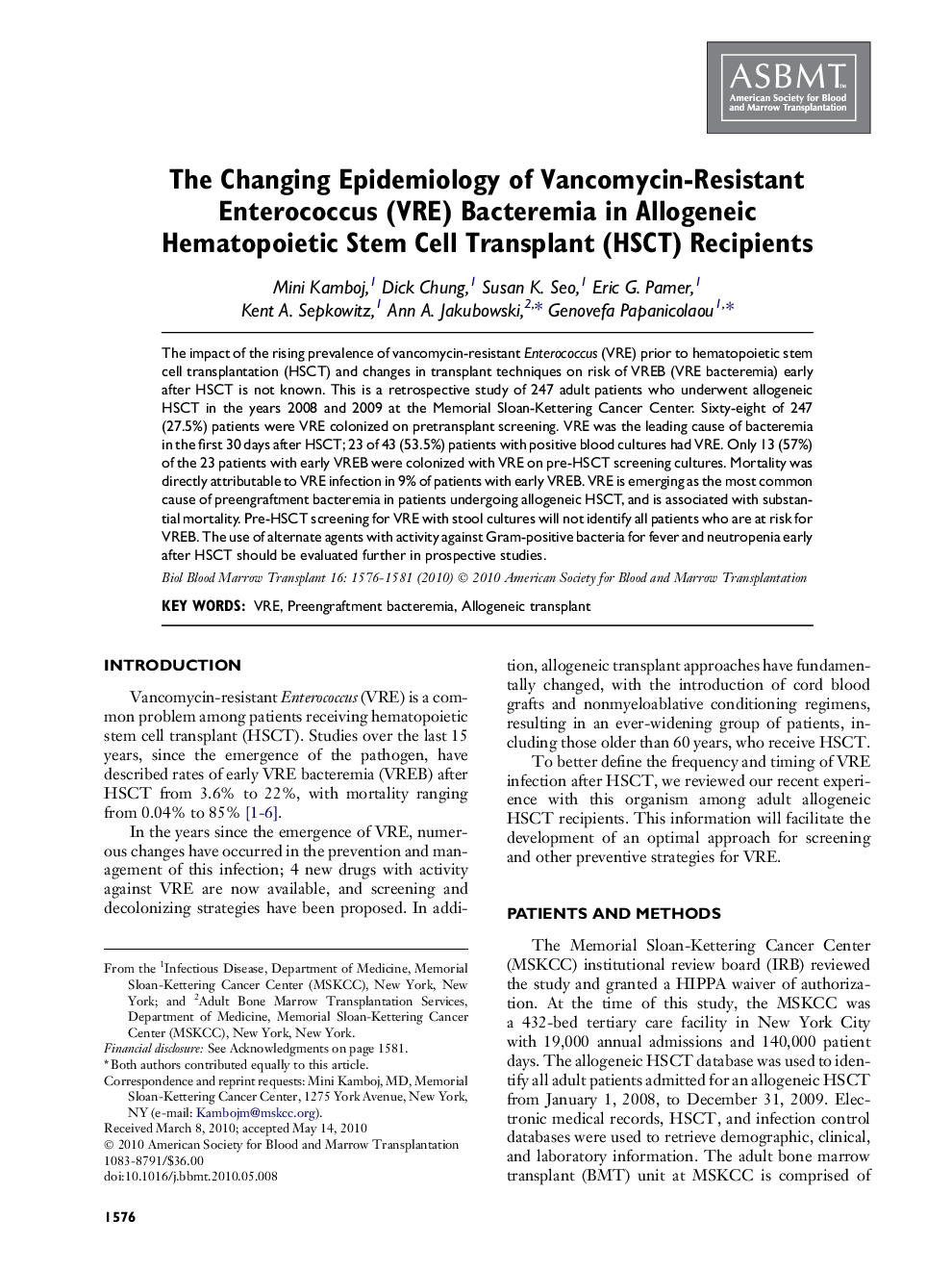| Article ID | Journal | Published Year | Pages | File Type |
|---|---|---|---|---|
| 2104119 | Biology of Blood and Marrow Transplantation | 2010 | 6 Pages |
The impact of the rising prevalence of vancomycin-resistant Enterococcus (VRE) prior to hematopoietic stem cell transplantation (HSCT) and changes in transplant techniques on risk of VREB (VRE bacteremia) early after HSCT is not known. This is a retrospective study of 247 adult patients who underwent allogeneic HSCT in the years 2008 and 2009 at the Memorial Sloan-Kettering Cancer Center. Sixty-eight of 247 (27.5%) patients were VRE colonized on pretransplant screening. VRE was the leading cause of bacteremia in the first 30 days after HSCT; 23 of 43 (53.5%) patients with positive blood cultures had VRE. Only 13 (57%) of the 23 patients with early VREB were colonized with VRE on pre-HSCT screening cultures. Mortality was directly attributable to VRE infection in 9% of patients with early VREB. VRE is emerging as the most common cause of preengraftment bacteremia in patients undergoing allogeneic HSCT, and is associated with substantial mortality. Pre-HSCT screening for VRE with stool cultures will not identify all patients who are at risk for VREB. The use of alternate agents with activity against Gram-positive bacteria for fever and neutropenia early after HSCT should be evaluated further in prospective studies.
